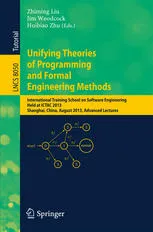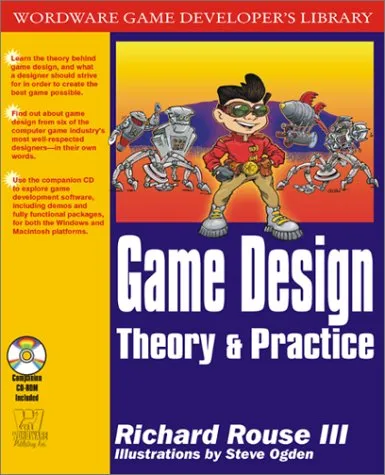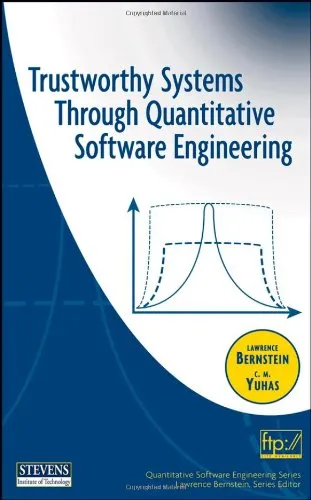Software Engineering - Theory and Practice
4.0
Reviews from our users

You Can Ask your questions from this book's AI after Login
Each download or ask from book AI costs 2 points. To earn more free points, please visit the Points Guide Page and complete some valuable actions.Related Refrences:
Introduction to "Software Engineering: Theory and Practice"
In today’s fast-changing technological environment, the field of software engineering is more critical than ever. The book "Software Engineering: Theory and Practice" serves as a cornerstone for both students and professionals, offering a rich and comprehensive exploration of the principles, methodologies, and practices that underlie the creation of high-quality software. Authored by Shari Lawrence Pfleeger and Joanne M. Atlee, this book blends theoretical foundations with practical examples, making it invaluable for anyone interested in mastering the art and science of software development.
Detailed Summary of the Book
This book is structured to cover both the theoretical aspects of software engineering and their practical applications. Over the course of its chapters, it walks the reader through the software development lifecycle, providing an in-depth understanding of topics such as requirements engineering, system design, testing, maintenance, and project management. With a clear focus on best practices, this text emphasizes delivering cost-effective, reliable, and maintainable software.
The early chapters provide a strong foundation in software engineering principles, touching on essential concepts such as software processes, Agile development, and iterative frameworks. The middle sections dive into design strategies, exploring architectural decisions, user interface design, and coding practices. The text also emphasizes quality assurance with in-depth discussions on testing methodologies, metrics, and formal verification techniques. Concluding with practical insights into risk management and ethics, the book ensures a balanced perspective, preparing readers to navigate real-world challenges effectively.
This holistic approach pairs theory with industrial case studies, enabling readers to visualize how software engineering concepts translate into real-world scenarios. Supplemented with exercises and thought-provoking questions, it encourages active learning and critical thinking.
Key Takeaways
- Appreciation for the importance of structured software engineering processes and their role in building complex systems.
- Comprehensive understanding of the entire software development lifecycle, from requirements gathering to maintenance.
- Techniques for balancing competing priorities, including time, quality, and cost considerations, during software projects.
- Exposure to widely adopted methodologies like Agile, Waterfall, and iterative models.
- Insights on strategies for software design, coding standards, and testing for quality assurance.
- An emphasis on risk assessment, project management, and ethical considerations in software engineering decisions.
Famous Quotes from the Book
“Software engineering is not just about writing code; it is about building a reliable, efficient, and maintainable system that meets customer needs.”
“The software process is a roadmap to success. Without it, even the most talented developers can lose their way.”
“Good design is not an accident. It results from applying sound principles learned through years of experience and study.”
Why This Book Matters
"Software Engineering: Theory and Practice" is more than just a textbook; it is a vital resource for anyone looking to excel in software development. As the software industry continues to evolve, the importance of adhering to structured, methodical engineering practices cannot be overstated. This book helps readers understand the "why" behind the processes, equipping them with the knowledge to make sound technical and managerial decisions.
What sets this book apart is its ability to address both academic rigor and practicality. By synthesizing deep theoretical insights with actionable techniques, it bridges the gap between the classroom and the workplace. Whether you're a student preparing for a career in software development or a seasoned professional seeking to refine your understanding, this book provides a robust framework to improve software quality and project success rates.
In an era where software systems are at the heart of virtually every industry, understanding how to design, develop, and maintain systems effectively is no longer optional—it's essential. This book arms you with the tools to meet the demand for reliable, scalable, and ethical software solutions in every field.
Free Direct Download
You Can Download this book after Login
Accessing books through legal platforms and public libraries not only supports the rights of authors and publishers but also contributes to the sustainability of reading culture. Before downloading, please take a moment to consider these options.
Find this book on other platforms:
WorldCat helps you find books in libraries worldwide.
See ratings, reviews, and discussions on Goodreads.
Find and buy rare or used books on AbeBooks.
1264
بازدید4.0
امتیاز0
نظر98%
رضایتReviews:
4.0
Based on 0 users review
Questions & Answers
Ask questions about this book or help others by answering
No questions yet. Be the first to ask!













